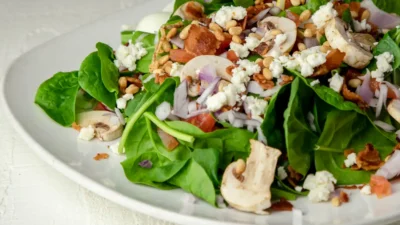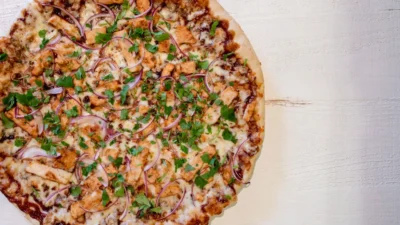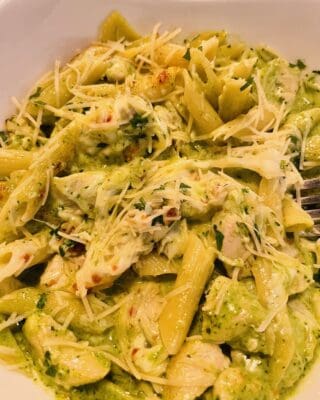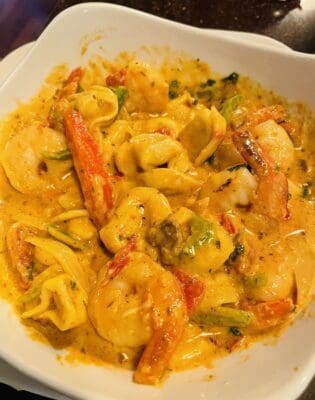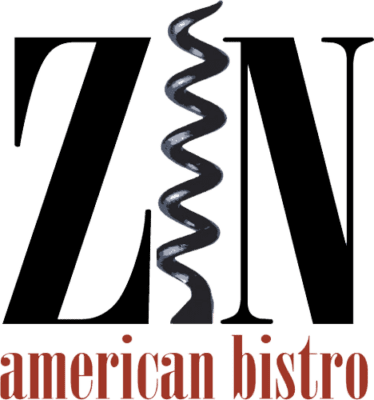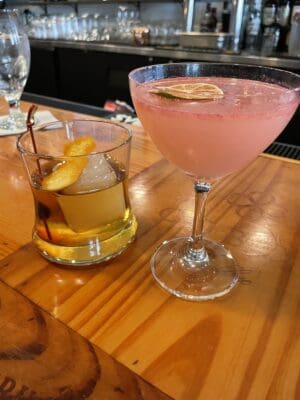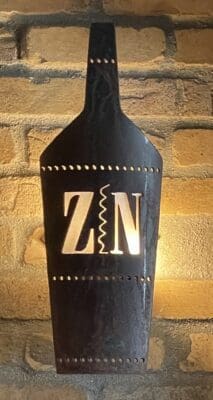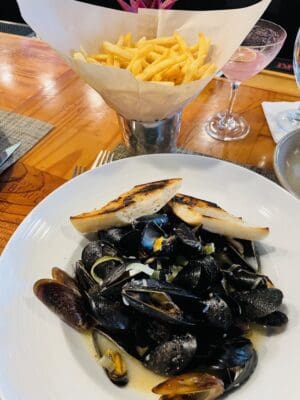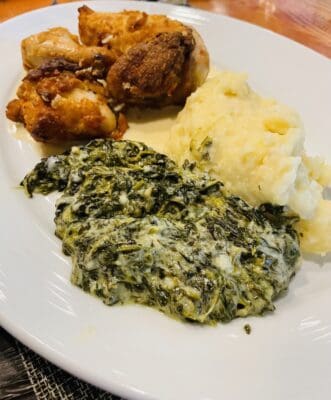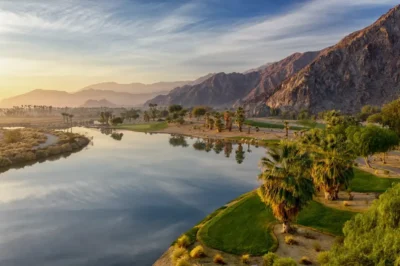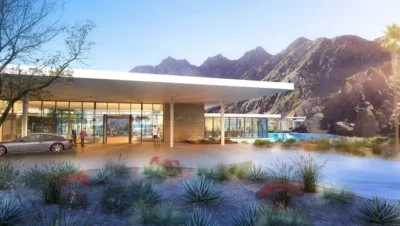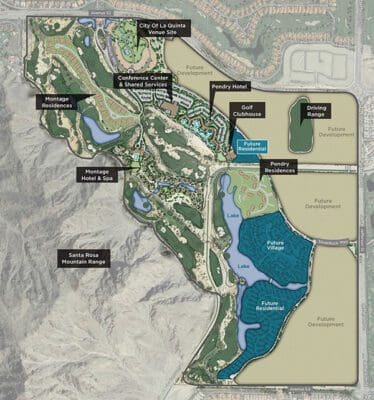Best Sweet Treats
While you're in the mood to indulge, try the Best Chocolate Chip Cookie, Best Place for Tea and Chocolate, Best Date Shake, and Best Horchata Latte.

These scrumptious chocolate chip cookies are made fresh daily at The Sandwich Spot in Palm Springs.
PHOTOGRAPH BY MOLLIE KIMBERLING
What is it about a fresh-baked chocolate chip cookie that’s so irresistible? Natalie Keenberg, one of the friendly faces behind the counter at The Sandwich Spot in Palm Springs hits the nail on the head for me: “It’s just nostalgic,” she says. The version at this lunchtime hot spot is one of my favorites. Their approach — a “house secret,” according to Keenberg, from the recipe logs of late owner Corey Saldana, who grew up baking alongside his mother — results in an extra-wide and uniformly slim chocolate-chipper that’s slightly crisp around the edges and perfectly soft and breakable at the center. Though The Sandwich Spot has privately owned locations throughout California, and in Reno, Nevada, you will find Saldana’s cookie only at this outpost. “The cookie is a mainstay, and we make them fresh daily,” Keenberg says. “It’s the perfect size for sharing. Or not sharing.”
The Real Italian Deli, with locations in Palm Desert and Palm Springs, takes an altogether different — but equally delicious — approach. “Our baker makes a really thick cookie,” says manager Jairo Quintanilla Flores. “You’re going to want a glass of milk.” It is taller and thicker than most, which means the center stays doughier. If for some tortuous reason you must resist immediate consumption, that doughy center translates to a cookie that’s still soft the second day.
Like the one at The Sandwich Spot, this crumbly confection often sells out. So take your lunch break early and order an extra if you can.

Cali Rosina Tea Shop in Old Town La Quinta.
PHOTOGRAPHY BY MOLLIE KIMBERLING
BEST PLACE FOR TEA AND CHOCOLATE
Regulars who pop into Old Town La Quinta’s restaurants, galleries, and boutiques may not have realized they needed a specialty tea shop, where dozens of hot and iced drinks join a global assortment of loose-leaf teas and chocolate bars. But they got it.
The door to Cali Rosina Tea Shop swings open and closed almost nonstop as co-owner Jodie Smith pours samples of the freshest, fruitiest, most flavorful iced teas into tiny paper cups for customers wracked with indecision. The spa-worthy Poolside blends lavender, lemon, and coconut. More lemon squeezes into Palmer drinks flavored by strawberry, peach, hibiscus, and mango. From ceremonial-grade matchas with homemade coconut cream to the ice-blended Cold Frosts, drinks receive sweetener only by request (choose agave, maple syrup, or honey).
About 270 artisan chocolate bars in gift-ready sleeves surpass any assortment for miles. — Lisa Marie Hart

BEST DATE SHAKE
I first had a date shake on a dare at The Malt Shop near Lake Arrowhead when I was about 10. I loved it, especially the bottom of the glass, where the date gravel gathered. I have since discovered some significant differences in this unique, SoCal classic. There’s Hadley Fruit Orchards’ well-priced ($4.95) but insipid shake in Cabazon and Oasis Date Gardens’ excellent, super-datey shake, but the latter is still curbside only, closed on weekends during the summer, and too far to drive to unless you’re on your way to the Salton Sea. Shields Date Garden, of course, invented the date crystal in 1936. This translates to a smooth, date-infused concoction. It’s dark and creamy and a pretty good deal at $7.95 for a 22-ounce shake. My favorite is from Lappert’s Ice Cream, with locations in Palm Springs and Palm Desert. They make them in front of you with three scoops of vanilla, three scoops of date ice cream, and a couple scoops of date paste crafted from Coachella Valley dates. Add some whole milk, blend, top with whipped cream, and Bob’s your uncle. The difference is in the quality of the ice cream, and Lappert’s is heads above the competition. OK, $8.95 for 16 ounces is pricey, but if you only indulge in a date shake once or twice a year, like I do, it’s worth it. — Kent Black

PHOTOGRAPH COURTESY LAPPERT'S ICE CREAM
Lappert’s Ice Cream has locations in Palm Springs and Palm Desert.
BEST HORCHATA LATTE
Sixth Street Coffee in Coachella is known for its coffee as well as its community of coffee aficionados. But their caffeinated selections don’t stop at americanos and cold brew. The specialty lattes here are some of the best in the Coachella Valley, ranging from lavender-rose to chocolate Mazapan, but it’s the iced horchata latte that has us singing this coffee shop’s praises. Horchata is a beverage that’s popular in Mexico and Spain and is made by steeping grains and nuts in water and then sweetening the mixture with sugar and spicing it up with cinnamon. Adding a shot of espresso gives this sweet beverage a much-appreciated kick, making it a perfect caffeinated refresher. — Catherine Downes

PHOTOGRAPH BY MOLLIE KIMBERLING
Horchata Latte at Sixth Street Coffee in Coachella.














